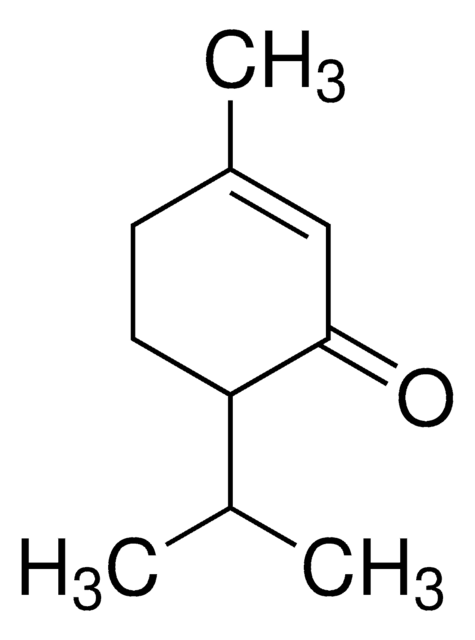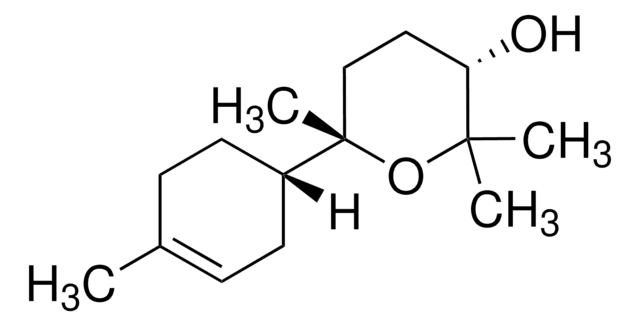22070
(+)-Carvone
analytical standard
Synonyme(s) :
(+)-p-Mentha-6,8-diene 2-one, (S)-5-Isopropenyl-2-methyl-2-cyclohexenone
About This Item
Produits recommandés
Qualité
analytical standard
Niveau de qualité
Pureté
≥98.5% (sum of enantiomers, GC)
Activité optique
[α]20/D +61±2°, neat
Durée de conservation
limited shelf life, expiry date on the label
Technique(s)
HPLC: suitable
gas chromatography (GC): suitable
Indice de réfraction
n20/D 1.499
Point d'ébullition
228-230 °C (lit.)
Densité
0.960 g/mL at 20 °C (lit.)
Application(s)
agriculture
environmental
food and beverages
Format
neat
Chaîne SMILES
CC(=C)[C@H]1CC=C(C)C(=O)C1
InChI
1S/C10H14O/c1-7(2)9-5-4-8(3)10(11)6-9/h4,9H,1,5-6H2,2-3H3/t9-/m0/s1
Clé InChI
ULDHMXUKGWMISQ-VIFPVBQESA-N
Vous recherchez des produits similaires ? Visite Guide de comparaison des produits
Description générale
Application
Autres remarques
Mention d'avertissement
Warning
Mentions de danger
Conseils de prudence
Classification des risques
Skin Sens. 1A
Code de la classe de stockage
10 - Combustible liquids
Classe de danger pour l'eau (WGK)
WGK 1
Point d'éclair (°F)
204.1 °F - closed cup
Point d'éclair (°C)
95.6 °C - closed cup
Équipement de protection individuelle
Eyeshields, Gloves
Faites votre choix parmi les versions les plus récentes :
Déjà en possession de ce produit ?
Retrouvez la documentation relative aux produits que vous avez récemment achetés dans la Bibliothèque de documents.
Les clients ont également consulté
Notre équipe de scientifiques dispose d'une expérience dans tous les secteurs de la recherche, notamment en sciences de la vie, science des matériaux, synthèse chimique, chromatographie, analyse et dans de nombreux autres domaines..
Contacter notre Service technique











